Engaging the Sprintensive course theme: Social Change for Social Justice
Middlebury Institute of International Studies at Monterey, CA Spring 2017
All lectures are free and open to the public
Amy Collier: Embodiment and the Digital: Constructing and Deconstructing the Body
Friday, February 17— Lecture 12 noon-1:30 p.m. McGowan 102, 411 Pacific St.
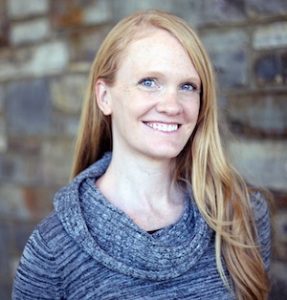 Amy reflects on the role of body intelligence when communicating in virtual space, amplifying the ways we can use technology to enhance social change rather than diminish exploration and creativity.
Amy reflects on the role of body intelligence when communicating in virtual space, amplifying the ways we can use technology to enhance social change rather than diminish exploration and creativity.
Amy is the Associate Provost for Digital Learning at Middlebury College, providing strategic vision and leadership to position Middlebury as a leading innovator in creating and sustaining a global learning community through digital pedagogies and technologies. Prior to this, Amy Collier was the senior director for inspiration and outreach at Stanford University, overseeing online and blended course design and teaching initiatives and conducting research to inform effective practices across the University. Amy received her doctorate in Family Studies from Texas Woman’s University in 2008 and frequently presents at universities and conferences, sharing her passion for topics like open learning, online learning, and faculty development. She also teaches Jazzercise and hosts the website blog: https://redpincushion.me
Co-sponsored with the Digital Learning Commons
Lee Holden: Self-Managing Stress through Qi Gong for
Effective Social Change
Thursday, March 2 – Lecture 6-7:30 p.m. Irvine Auditorium, 499 Pierce St. (workshops March 3)
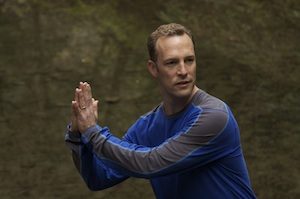 Lee discusses his Qi Gong journey through playing varsity soccer at Berkeley, translating the works of Grandmaster Mantak Chia in Thailand, and creating training programs and Qi Gong videos in Santa Cruz, including new films for PBS. Reflections link to his recent collaboration with Middlebury College on a website and videos for clearing stress and sustaining vitality. http://sites.middlebury.edu/wholebody/
Lee discusses his Qi Gong journey through playing varsity soccer at Berkeley, translating the works of Grandmaster Mantak Chia in Thailand, and creating training programs and Qi Gong videos in Santa Cruz, including new films for PBS. Reflections link to his recent collaboration with Middlebury College on a website and videos for clearing stress and sustaining vitality. http://sites.middlebury.edu/wholebody/
Lee is a Doctor of Chinese Medicine, and a graduate of the University of California, Berkeley, with a BA in Psychology. He has translated works for Mantak Chia, a widely revered Qi Gong expert, and has trained and taught in numerous intercultural contexts in Asia. Today, he is an internationally known instructor in meditation, Tai Chi, and Qi Gong, as well as a licensed acupuncturist, herbalist, and author (7 Minutes of Magic, Penguin 2007). His popular library of Qi Gong DVDs have made him a regular fixture on American Public Television, he is a stress management consultant for top Silicon Valley corporations, and he holds annual teacher training programs and weekly classes at his Santa Cruz Chi Center in California with on-line and in-person programs. His intention is to bring this healthful and effective practice into greater public awareness. See http://sites.middlebury.edu/wholebody/
Co-sponsored with the Mindfulness Working Group and the Department of Development, Practice, and Policy
John Elder: Myth as a Deep Cultural Resource in an
Era of Climate Change
Tuesday, March 7 — Lecture 6-7:30 p.m. McGowan 102 (workshops March 9-10)
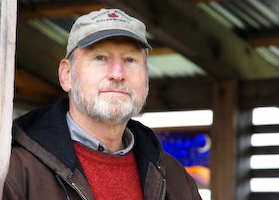 John shares his passion for myth and story by focusing on the myth of Persephone as a way of engaging concretely and emotionally with the seasons, modeling the relevance of writing as a form of activism around contemporary climate challenges.
John shares his passion for myth and story by focusing on the myth of Persephone as a way of engaging concretely and emotionally with the seasons, modeling the relevance of writing as a form of activism around contemporary climate challenges.
John joined the Middlebury faculty in l973, upon completion of a Ph.D. in English at Yale University in English. His original appointment in English was followed by a split-appointment in English and American Literatures and in Environmental Studies. In 2007 he was appointed as a non-departmental College Professor. Starting in 1981, he has also taught most summers at the Bread Loaf School of English, including at the Alaska, New Mexico, North Carolina, and Sicily campuses as well as at the Mother Loaf. He retired from Middlebury in 2010. John’s special areas of interest as a teacher were in American nature writing, English Romantic Poetry, modern American poetry of nature, and Japan’s haiku tradition. Three recent books — Reading the Mountains of Home, The Frog Run, and Pilgrimage to Vallombrosa — have each combined discussion of literature, description of Vermont’s landscape and natural history, and personal memoir. His newest book, a multi-media project called Picking Up the Flute, was published in 2016 and reports on his wife Rita’s and his immersion in traditional Irish music since their retirements from teaching. https://sites.middlebury.edu/johncelder
Co-Sponsored with the program in International Environmental Policy; the Department of Development, Practice, and Policy; and the William Cole Tellman Library, with support from the One Middlebury fund.
Molly Anderson: Written on the Body: Impact of Food
Insecurity Across Generations
Thursday, March 30 — Lecture 12 noon-1:30 p.m., McGowan 102
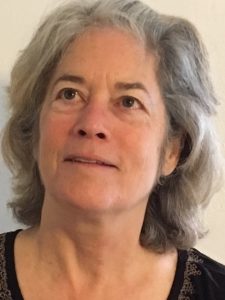 Molly considers the ways that food insecurity affects mothers, children, and their children through the multifaceted impacts of poverty and injustice globally.
Molly considers the ways that food insecurity affects mothers, children, and their children through the multifaceted impacts of poverty and injustice globally.
Molly is organizing a program in Food Studies at Middlebury College in Vermont http://www.middlebury.edu/academics/food-studies, where she teaches about hunger and food security, fixing food systems, and sustainability. She is especially interested in multi-actor collaborations for sustainable food systems, sustainability metrics and assessment, food system resilience, human rights in the food system, food security and the right to food in the US and other industrialized countries, and the transition to a post-petroleum food economy. She is also interested in bridging interests and concerns of academicians and community-based activists. She is involved in food system planning at the state and regional scales and is a member of the International Panel of Experts on Sustainable Food Systems (IPES-Food). She was a Coordinating Lead Author on the International Assessment of Agricultural Knowledge, Science & Technology for Development (IAASTD) and served on the Board of the Community Food Security Coalition for 6 years. She has worked as a private consultant for domestic and international organizations, with Oxfam America, and at Tufts University. Molly earned an interdisciplinary Ph.D. in Systems Ecology from University of North Carolina at Chapel Hill and a B.S. and M.S. in natural resource management and a certificate in Latin American Studies from Colorado State University.
Co-sponsored with the program in International Environmental Policy and the MIIS organic garden—Our Green Thumb, with support from the One Middlebury fund
Dr. Shruthi Mahalingaiah: Interpreting and Translating the Body: Medical and Intercultural Views
Friday, April 21 — Lecture 8-10 a.m. Irvine Auditorium, 499 Pierce St.
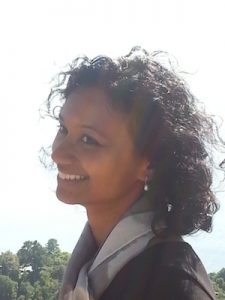 Shruthi illustrates the multilingual challenges of working with medical patients, relying on interpreters, often by phone, to convey body sensations, physical symptoms, and choices about medical procedures within intercultural contexts. Her journey as an Indian-born American, a Watson Fellow studying indigenous healing in Ecuador and Bali, and her medical career at Harvard and Boston Universities inform the presentation.
Shruthi illustrates the multilingual challenges of working with medical patients, relying on interpreters, often by phone, to convey body sensations, physical symptoms, and choices about medical procedures within intercultural contexts. Her journey as an Indian-born American, a Watson Fellow studying indigenous healing in Ecuador and Bali, and her medical career at Harvard and Boston Universities inform the presentation.
Shruthi was born in India and immigrated to Connecticut with her family at an early age. She continued her learning at Middlebury College in Vermont. Prior to medical school, supported by a T
homas J. Watson Fellowship, she lived in Bali and the Ecuadorian Amazon Basin studying the role of ritual in the healing process. She attended Harvard Medical School and completed her residency in the OB/GYN Combined Program at Brigham and Women’s/Massachusetts General Hospital. After completing her fellowship in Reproductive Endocrinology at Brigham and Women’s Hospital, she joined the faculty at Boston University School of Medicine, where she is an Assistant Professor of Obstetrics and Gynecology and board certified in Reproductive Endocrinology and Infertility. She is currently funded on the Reproductive Scientist Training Program and was previously supported as a Scholar on the Building Interdisciplinary Research Careers in Women’s Health program to study air pollution and risk of gynecologic disease incidence. Her current research focuses on environmental exposure and polycystic ovary syndrome. She w
as awarded the Endocrine Society’s Early Investigator Award 2016 for her contributions to date. Dr. Mahalingaiah has three daughters – two of which are identical twins.
Co-sponsored with the Graduate School in Translation, Interpretation, and Language Education
The Embodied Intelligence lecture and workshop series is made possible with support from the Fund for Innovation at Middlebury College
Lectures include simultaneous interpretation in collaboration with GSTILE.
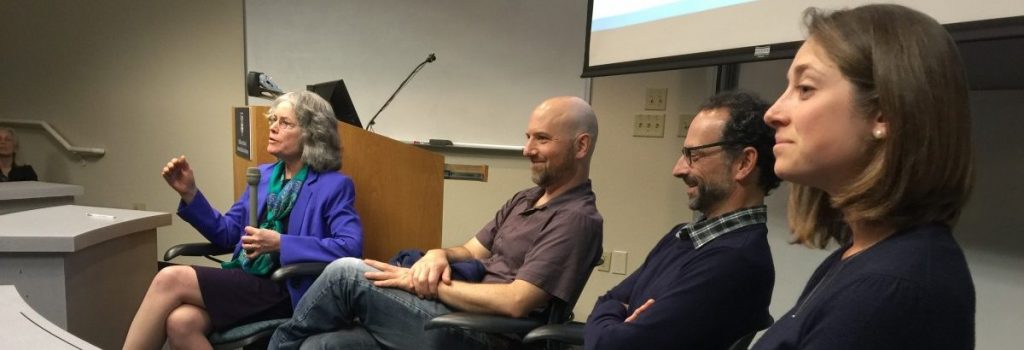
Molly Anderson and Conversationalists